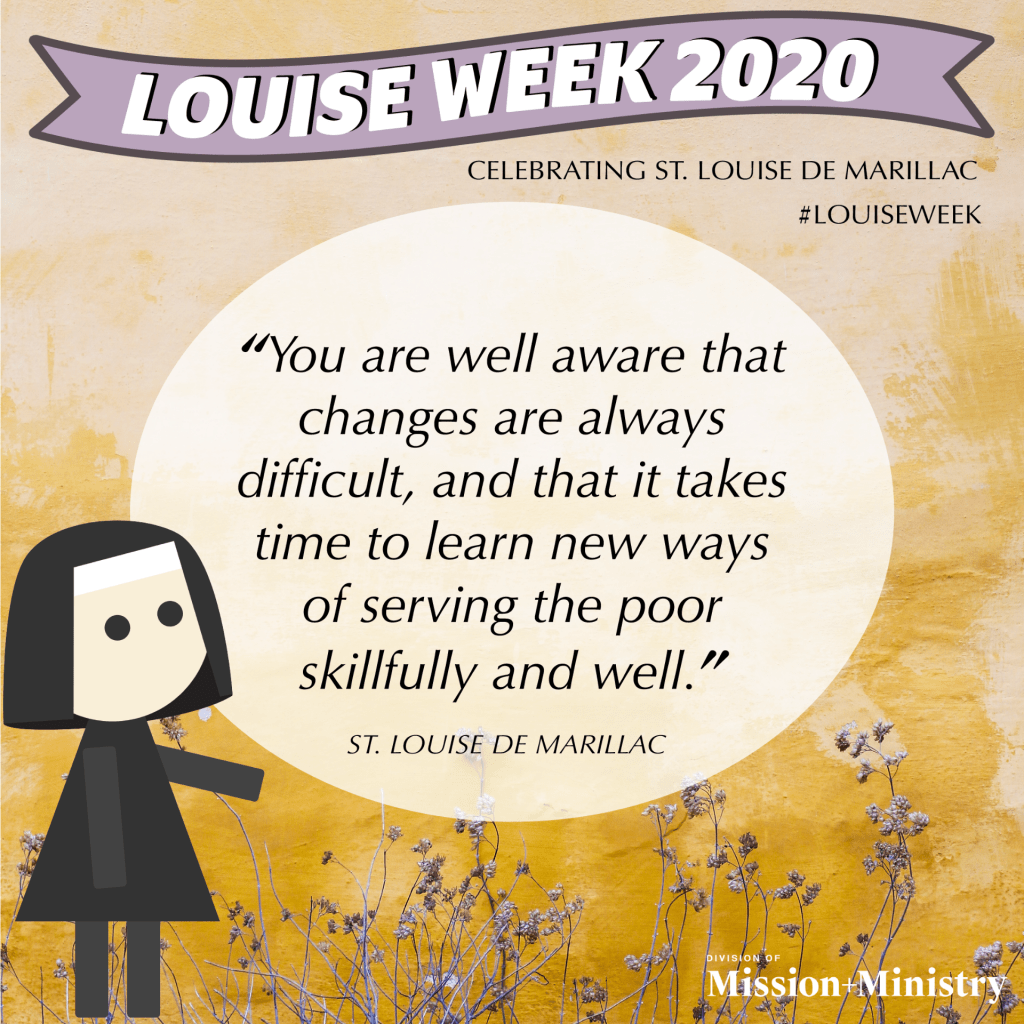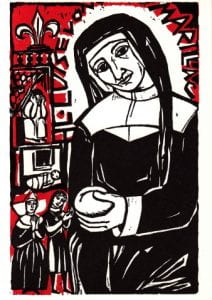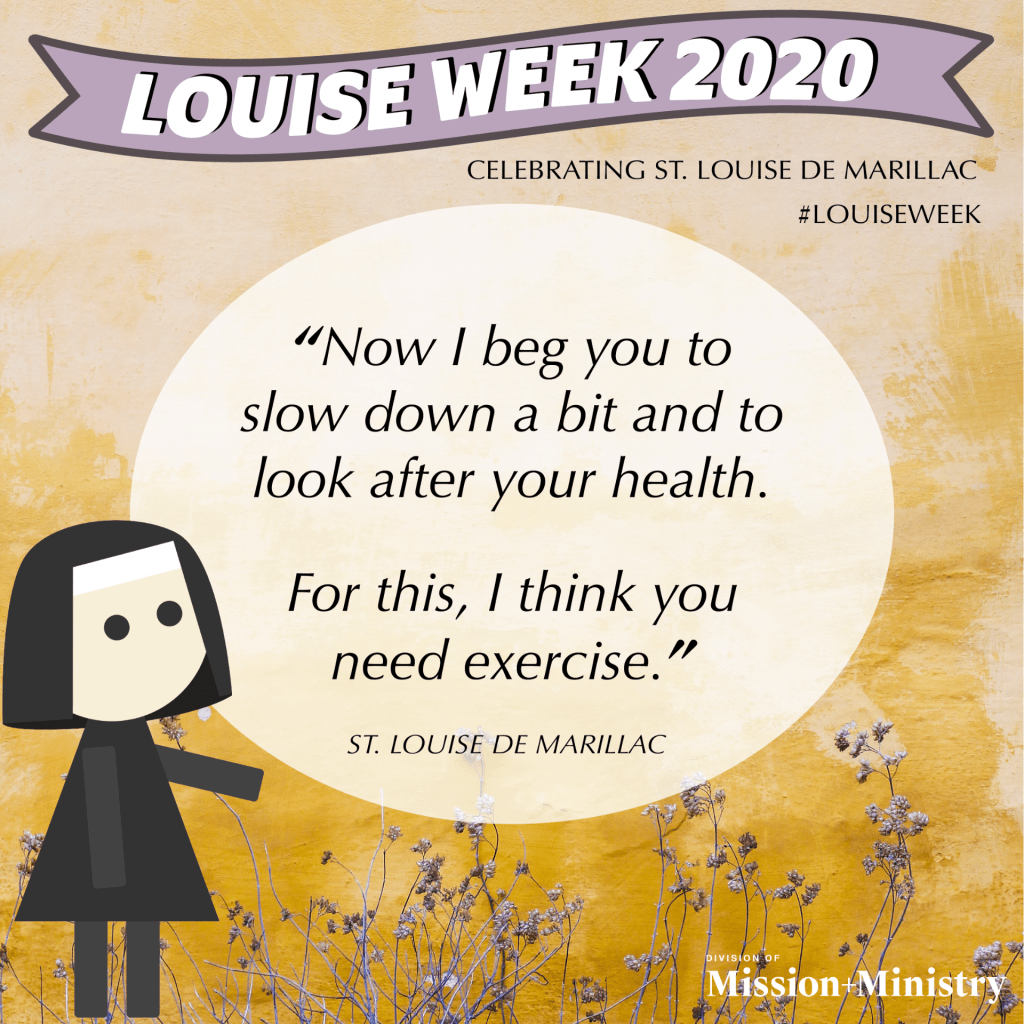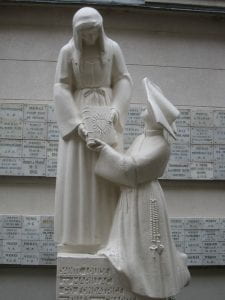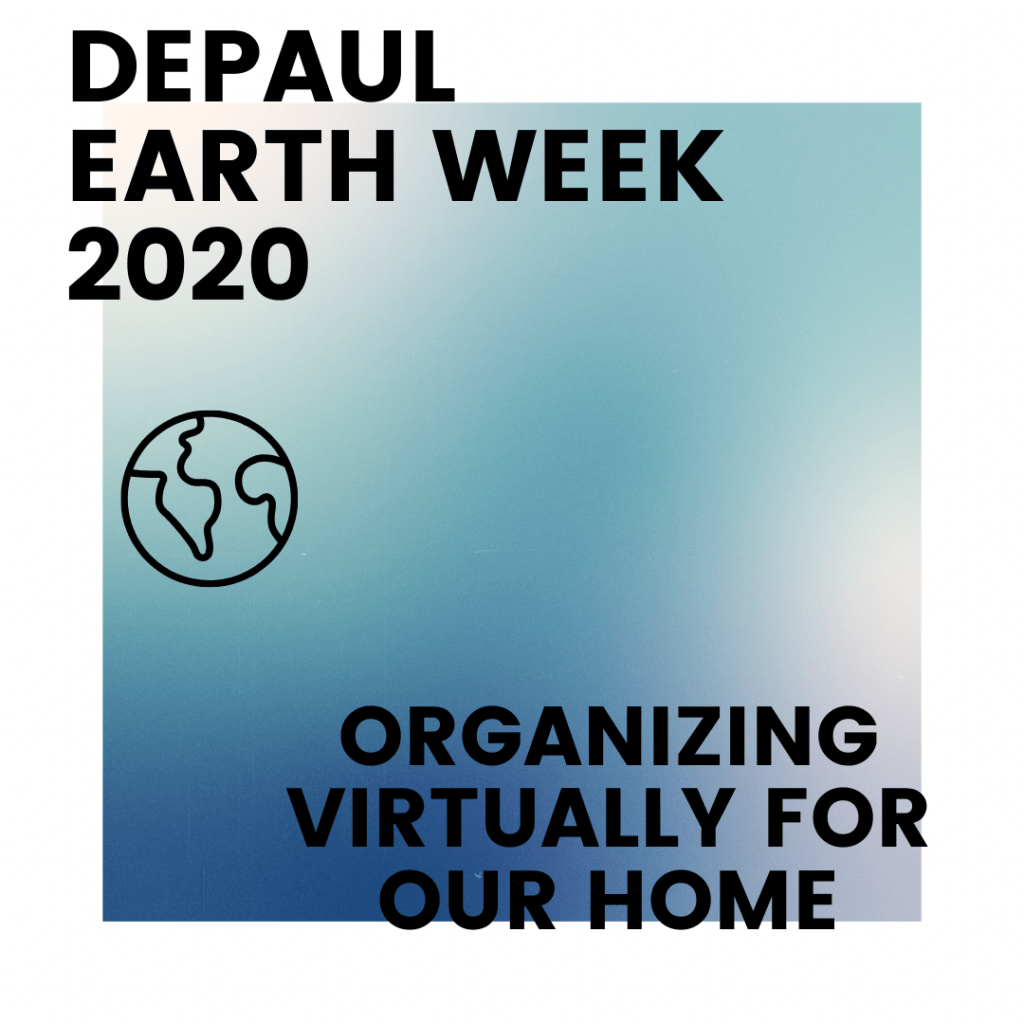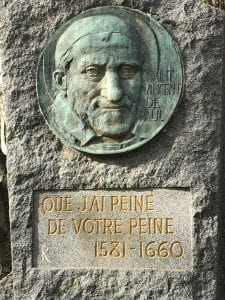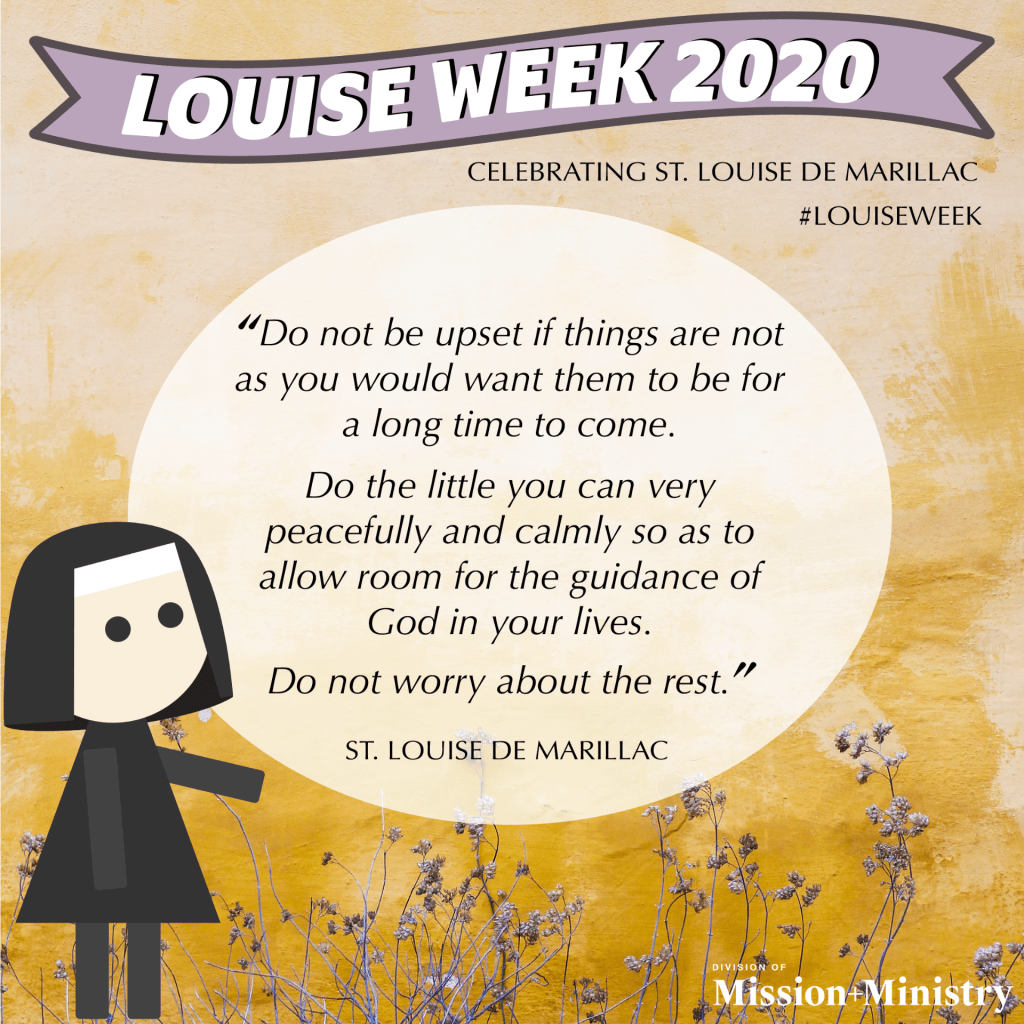
By
Gracie Covarrubias
Admission Counselor, Office of Undergraduate Admission
DePaul Class of 2017
It has been over 400 years since Louise de Marillac last stepped foot on this earth, and we’ve spent each of those years retracing her steps in an effort to better understand and emulate one of the most formative leaders in Vincentian family history. Louise’s life path is anything but linear, in fact if you were to draw it out you would quickly find that there are enough twists and turns to discourage and stop the everyday person dead in their tracks. But not Louise; despite the cards she was dealt, she persisted and pivoted to work towards her calling of serving others. Each story I’ve heard about Louise has unearthed another layer of her that draws me in closer. I’ve learned that the phrase, “To know her is to love her and to love her is to know her” suits Louise well. My hope is that as we share the story of Louise’s life you will get to know and love her a bit more than you did before, and that you will learn a bit more about yourself in the process.
Louise’s life is shared in four acts, each one detailing defining moments of her story. After each act, I invite you to answer the reflective questions and think back on your own life story.
Act I: Louise’s Early Years
On August 12th, 1591, Louise de Marillac was born just outside of Paris. She was the daughter of Louis de Marillac and born out of wedlock. Louise never knew her mother—a circumstance that made her illegitimate by societal standards and marked her with a metaphorical scarlet letter of sorts. Although her father raised her, she was never quite accepted by her family in the way we yearn to belong. At just three months old, she was placed in the care of the Dominican Sisters of Poissy with an aunt. This eventually led to Louise having access to a formative education. She studied at the convent and learned art, literature, and philosophy. Unfortunately, when Louise’s dad died, she was sent to a boarding school to learn “practical skills” for a woman. During this time, you had two options: either become a religious sister or marry. Our girl wanted to be a sister. Louise felt called to live a life in service to something bigger than herself. However, in the summer of 1612 when she turned 21, she was rejected by the Capuchin convent due to her family background and her health. This left Louise absolutely CRUSHED. Can you imagine having the biggest dream you’ve worked tirelessly towards taken from you because you couldn’t check off some boxes on a list? That was the startling realization facing Louise at the ripe old age of 21.
Reflective question: Who are you and where do you come from? Who has shaped and formed you to be who you are?
Act II: Louise as a Mother and Wife
Nevertheless, she persisted.
Being the pious woman Louise was she had faith that something else was planned. It was difficult for her to accept that her life’s dream would never come true. However, less than a year later she married Antoine de Gras on February 5th, 1613, and became a mother to a son, Michel, nine months later. Louise was trying to settle into new family responsibilities and did what she could to create the family she had always wanted. However, her happiness was short lived, and it came with complications. Her baby boy suffered from a developmental disability, and this brought great struggle in trying to navigate parenting in a society that did not understand those with disabilities.
As much as she loved her family, Louise endured much suffering in trying to be a wife and mother while also fighting to find her own sense of purpose. It was HARD, she was suddenly living a life she hadn’t envisioned, doing what she thought she should be doing because of societal standards imposed upon her. Depression ensued as Louise’s husband Antoine fell gravely ill. A future as a widowed single mother loomed. This was, without a doubt, Louise’s rock bottom. Everyone in her life was depending on her, yet she must have had a sinking feeling that she was letting them, herself, and God down as she fumbled about trying to find a sense of purpose.
Reflective Question: When was the last time that you experienced a challenge?
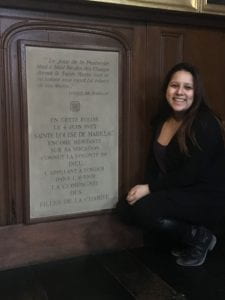 Act III: A Luminous Turning Point
Act III: A Luminous Turning Point
Louise was at a crossroads in her life and she wasn’t where she was meant to be. Her husband’s health continued to decline, and she was heartbroken. She had lived a lifetime hoping to follow her calling to do God’s work, but now more than ever her dream of serving others as a sister felt like an impossibility. I imagine the phrase, “What am I even doing with my life?” echoed in Lousie’s mind constantly.
Overwhelmed with frustration, on the feast of Pentecost on June 4, 1623, Louise, while at prayer, pleaded to God for guidance. Just when she thought all was lost, he answered her prayer. She experienced a vision in which she saw herself serving the poor and living in community with sisters. This flicker of hope became her “lumière”—her guiding light of hope. Sometimes all you need is a metaphorical vision-board to give you something to hold onto, and this was Louise’s. As she sat inside a church in Paris, her doubts became quieter. She was now a woman with a plan. Louise was to stay with Antoine and await her chance to take vows of poverty. Little did she know that her lumière was foreshadowing a future as a Daughter of Charity. Louise saw an opportunity, and she was going to make it manifest if it was the last thing she did. This light, this moment of clarity, was a profound turning point for Louise. In fact, the moment was so powerful that she wrote down what God had advised her. As a reminder of her purpose, Louise put the note in her pocket and carried it with her everywhere until the day she died.
Reflective Question: What was a revelatory “lumiere” moment in your life?
Act IV: Louise as a Woman of Action
In 1625, following the death of Antoine and less than two years after her lumière, Louise met Vincent de Paul. Slowly but surely things started to fall into place for her. Vincent became her spiritual director and together the two became an unlikely team. She began to let go of her rigid lifestyle and started to find a balance between being a mother and serving her community through feeding and clothing the poor. In the decade that followed, she kept pressing forward and working with Vincent to answer the needs of the poor in France, constantly finding new ways to honor the dignity of every person they encountered. On March 25, 1634, Louise de Marillac took a sacred vow, and along with Vincent she co-founded the Confraternity of the Daughters of Charity. This forever changed the way women could serve both God and the poor. As a leader of the Daughters of Charity, Louise became an innovator, organizer, and advocate by inviting rural peasant girls to come be educated and serve the needs of the sick and those living in poverty.
Equally as important, together, Vincent and Louise created whole new opportunities and roles for women in seventeenth-century France. Her proactive attitude and go getter mindset changed the way the Church served the world. Instead of being cloistered in a convent, Louise and Vincent preached that “The streets are my chapel” and took their work there to make an impact. She opened orphanages, founded the foster care system, served in hospitals, and created free schools for girls and homes for the elderly. Our girl Louise had grown into her role as a woman of spirit and action in ways beyond her imagination. Ultimately, her lumière vision was fulfilled.
On March 15, 1660, Louise was laid to rest having lived a beautiful and challenging life in devout service to others. Her life’s work, her legacy, is all around us today.
Reflective Question: Where are you now and where do you hope to be?
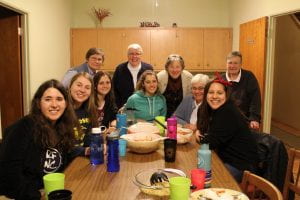 Today, we know Saint Louise de Marillac as the patron saint of social work in the Catholic Church. However, her impact extends far beyond the Church and even the Vincentian family. In fact, her life’s work laid the foundation for many of the modern systems of social work that we see around us today. We talk a lot about how Louise’s pious nature guided her in life. It inspired her to see the human dignity of everyone, and to fight for what is right and just. Louise wasn’t brave every moment of her life—no saint or sinner is—but she was brave when it mattered most. She was brave enough to believe in her faith and the people she served. It’s that bravery and persistence that made her such a profound trailblazer for social work, justice, and equity. It’s an understatement to say that Louise’s legacy lives on today and every day. In truth, it feels impossible to believe that 400 years have passed since she lived.
Today, we know Saint Louise de Marillac as the patron saint of social work in the Catholic Church. However, her impact extends far beyond the Church and even the Vincentian family. In fact, her life’s work laid the foundation for many of the modern systems of social work that we see around us today. We talk a lot about how Louise’s pious nature guided her in life. It inspired her to see the human dignity of everyone, and to fight for what is right and just. Louise wasn’t brave every moment of her life—no saint or sinner is—but she was brave when it mattered most. She was brave enough to believe in her faith and the people she served. It’s that bravery and persistence that made her such a profound trailblazer for social work, justice, and equity. It’s an understatement to say that Louise’s legacy lives on today and every day. In truth, it feels impossible to believe that 400 years have passed since she lived.
When I think about Louise, I think of her as living now alongside us all. I think about all the ways she’d be organizing people to call state representatives to make healthcare accessible for everyone. I think about all the people she’d gather together making face masks for every community. I think about the daycare service she’d direct for frontline workers. And, I think about the Zoom calls she’d arrange to check in on leaders from every community across our city. When I think of Louise, I think of every woman I know and love embodying a little bit of Louise’s persistence. Most importantly, I think about how Louise has taught us that every act of kindness and service is in fact a radical act, demanding equity and love by recognizing the dignity in us all.
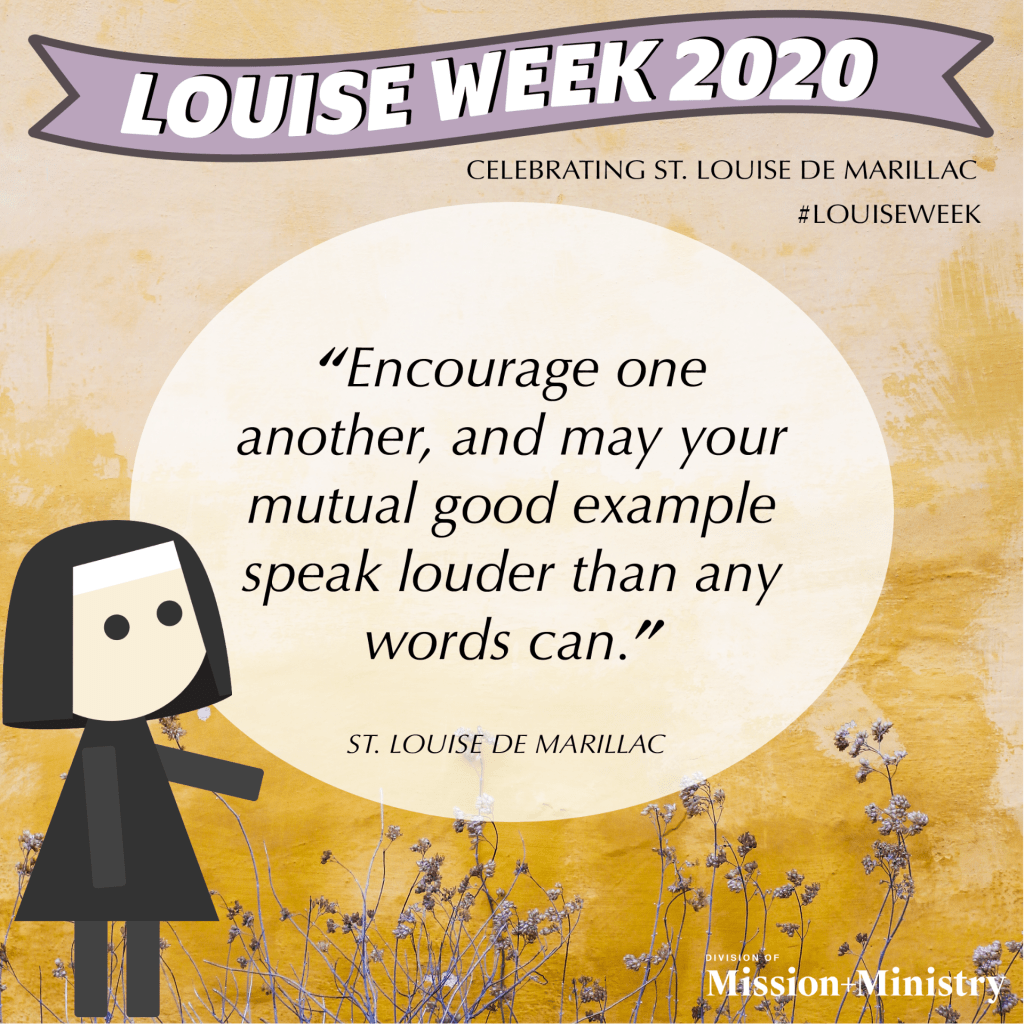 By
By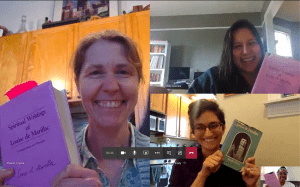 So, I went and dug for worms and then I did something that is really hard for me to do. I put out a plea for help. I got Louise de Marillac’s biggest fans together on Microsoft Teams! Over the course of an hour we laughed, cried, clapped, cheered, and we all pulled out our personal copies of the Spiritual Writings of Louise de Marillac. (Yes, we literally grabbed that book from our shelves before leaving DePaul for quarantine!)
So, I went and dug for worms and then I did something that is really hard for me to do. I put out a plea for help. I got Louise de Marillac’s biggest fans together on Microsoft Teams! Over the course of an hour we laughed, cried, clapped, cheered, and we all pulled out our personal copies of the Spiritual Writings of Louise de Marillac. (Yes, we literally grabbed that book from our shelves before leaving DePaul for quarantine!)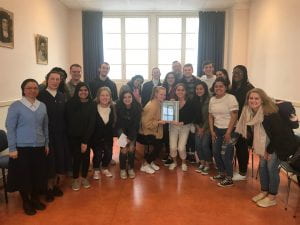 Louise de Marillac was a woman who empowered other women. She formed a community out of the poorest of the poor, creating home for them. She invited young peasant women from rural France into her personal space. She saw their potential, taught them to read and write, and equipped them to make change in their communities. This kind of hospitality was unprecedented during her time, and because of the community she formed, she created whole new opportunities that had never existed for women in society at the time.
Louise de Marillac was a woman who empowered other women. She formed a community out of the poorest of the poor, creating home for them. She invited young peasant women from rural France into her personal space. She saw their potential, taught them to read and write, and equipped them to make change in their communities. This kind of hospitality was unprecedented during her time, and because of the community she formed, she created whole new opportunities that had never existed for women in society at the time.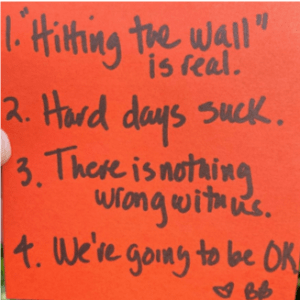 Now more than ever, I count on my sacred circles of women, my mama tribes, my colleagues, and my students to encourage me. I need them to remind me that it’s ok to not be ok, that my best is going to look different now, that I am enough, that I am loved even when I’m a mess. Sometimes these messages even come in virtual post-it notes from authors like Brené Brown, who reminds us: “Hitting the wall is real. Hard days suck. There is nothing wrong with us. We’re going to be ok.” Today, the best way to honor Louise is to do what she did 400 years ago—put courage into one another’s hearts and remember we have each other!
Now more than ever, I count on my sacred circles of women, my mama tribes, my colleagues, and my students to encourage me. I need them to remind me that it’s ok to not be ok, that my best is going to look different now, that I am enough, that I am loved even when I’m a mess. Sometimes these messages even come in virtual post-it notes from authors like Brené Brown, who reminds us: “Hitting the wall is real. Hard days suck. There is nothing wrong with us. We’re going to be ok.” Today, the best way to honor Louise is to do what she did 400 years ago—put courage into one another’s hearts and remember we have each other!